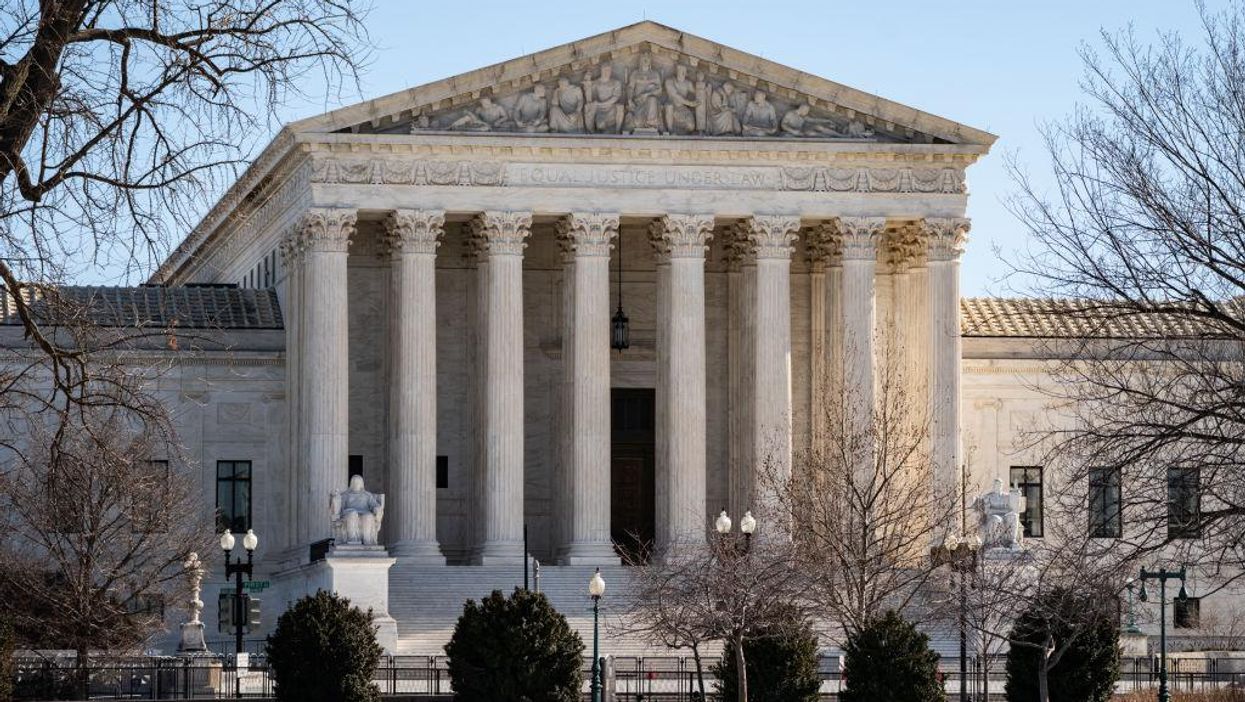
Salwan Georges/The Washington Post via Getty Images

High court sided with the Justice Department
The U.S. Supreme Court sided with the Department of Justice on Thursday, ruling that illegal immigrants who are subject to deportation bear the burden of proof in challenging their removal.
In a 5-3 opinion in Pereida v. Wilkinson, the court's conservative justices determined that Clemente Pereida, an immigrant from Mexico who has resided in the U.S. illegally for the past 25 years, bears the full burden of proving he is eligible to have his deportation canceled under the longstanding immigration law.
It seems like a simple enough concept: As it relates to immigration benefits, noncitizens aren't entitled to the same array of due process rights that citizens are. But evidently it wasn't that simple for the three liberal justices on the court, and for a time it looked like it wouldn't be the case for two of President Trump's appointees, either.
TheBlaze's Daniel Horowitz reported last year that Justices Neil Gorsuch and Brett Kavanaugh showed signs of wavering in regard to Pereida's fate. But in the end, both sided with the court's majority.
Gorsuch, authoring the majority opinion, wrote, "The Immigration and Nationality Act expressly requires individuals seeking relief from lawful removal orders to prove all aspects of their eligibility. That includes proving they do not stand convicted of a disqualifying criminal offense."
The INA allows for immigrants with past criminal convictions to seek the cancelation of their deportation order as long as their offenses didn't amount to a serious crime involving "moral turpitude," which is defined by the Justice Department as "a nebulous concept, which refers generally to conduct that shocks the public conscience."
In this case, while his deportation proceedings were already underway, Pereida was convicted in Nebraska of using a fake Social Security card in order to obtain employment, a crime involving moral turpitude, and so the immigration judge ruled he was ineligible to seek cancelation. However, the specific Nebraska statute that Pereida violated listed several offenses, one of which — operating a business without a license — did not involve moral turpitude.
Because there existed some ambiguity as to which offense Pereida stood convicted of, the Board of Immigration Appeals and the 8th Circuit Court of Appeals countered that Pereida may in fact still be eligible, and so the case went to the Supreme Court. And on Thursday, the court sided with the Justice Department.
"Individuals seeking relief from a lawful removal order shoulder a heavy burden," Gorsuch concluded. "Mr. Pereida failed to carry that burden."
Justice Stephen Breyer, along Justices Elena Kagan and Sonia Sotomayor, dissented. Justice Amy Coney Barrett was not involved in deciding the case since it was argued before she was appointed.